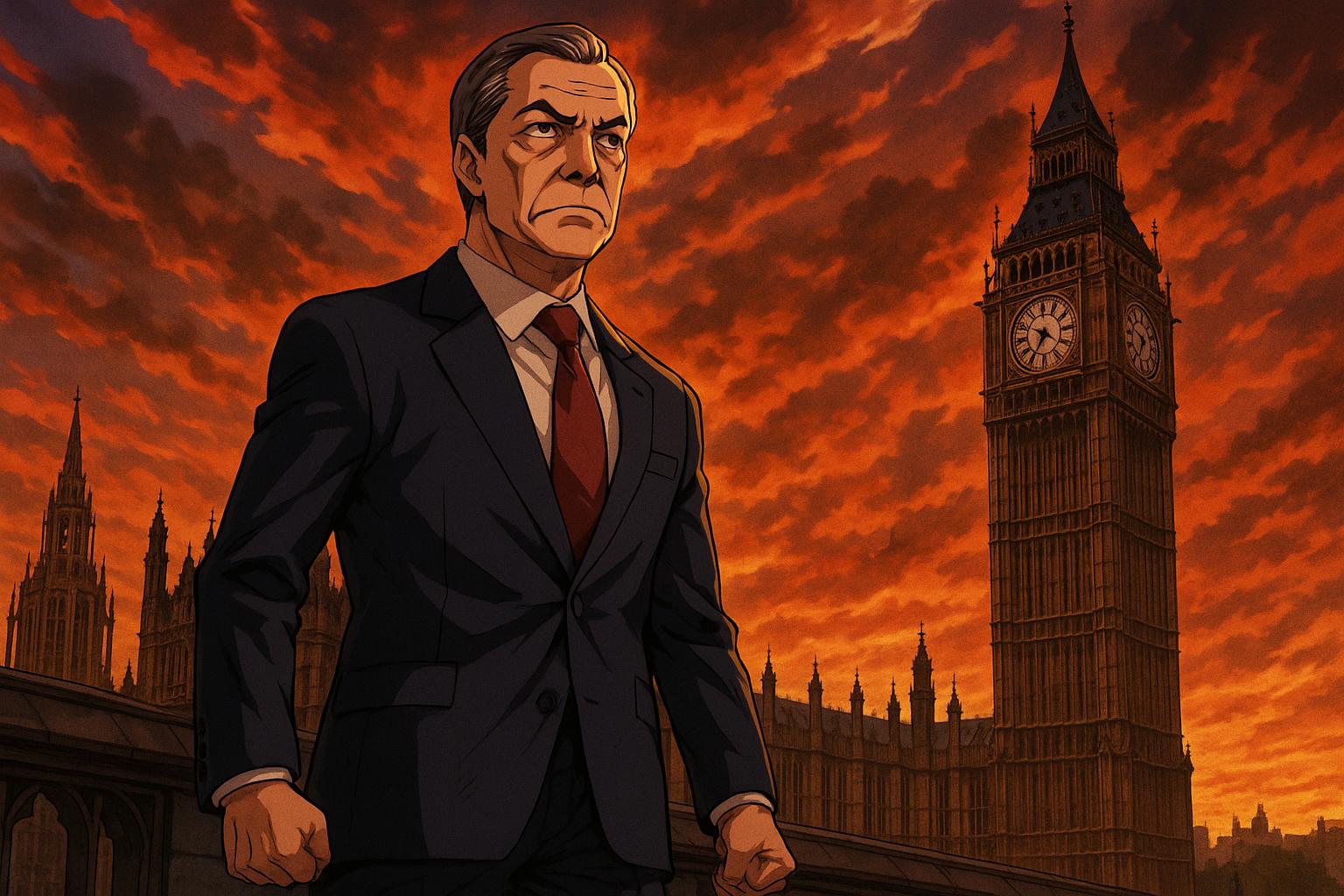As the UK gears up for the approaching general election, tensions within the political landscape are reaching a fever pitch, particularly with the resurgence of Nigel Farage and his Reform UK party, which has reportedly surged ahead of both Labour and the Conservatives in recent local elections. This political upheaval has prompted responses from various figures, most notably Lord Stuart Rose, a prominent advocate of the Remain campaign during the Brexit referendum.
Lord Rose, who chaired the Britain Stronger in Europe group, recently made headlines after declaring his intention to leave the country if Farage were to become Prime Minister. Appearing on ITV's Peston programme, he reaffirmed this stance, stating unequivocally, "I will definitely leave the country." His comments highlight not only his personal views but reflect broader anxieties regarding Farage's rising influence. He underscored the necessity of political action in response to what he perceives as imminent dangers posed by Farage’s political ambitions. “He won't become Prime Minister, we hope. But if you were sitting there looking at the danger signs – which is what the Prime Minister's done this week – you’d be taking action,” he noted, hinting at the need for political parties to reassess their strategies in light of this shift.
This sentiment echoes the broader concerns within the Labour camp, especially as leader Keir Starmer seeks to regain lost ground. Following a series of events labelled as missteps, including an immigration crackdown aimed at appealing to disenchanted voters, Starmer has found himself scrambling to present a viable alternative to Farage’s rising popularity. Farage’s ability to galvanise support reflects a growing discontent among voters regarding immigration and public services, issues that the Remain campaign may have underestimated during its initial push, as Lord Rose now acknowledges.
Reflecting on the past, Lord Rose has expressed regret over the emphasis placed on economic arguments during the anti-Brexit campaign. He admits that serious concerns surrounding immigration and public services resonated more strongly with voters than anticipated. This realisation has become increasingly critical as Farage positions himself as a champion of right-wing populism, linking his resurgence directly to the dissatisfaction with the current government's handling of these pressing issues.
In the Conservative camp, Prime Minister Rishi Sunak has acknowledged Farage's role in spotlighting immigration as a pivotal electoral issue. Sunak asserted that a vote for Farage’s party could inadvertently benefit Labour, thereby framing it as a dilemma for Conservative voters who seek to prevent a Labour government. This strategic positioning indicates a recognition of the shifting political dynamics and the need for the Conservatives to consolidate their support base amid rising competition.
The political narrative is further complicated by polls indicating that Farage's party could potentially replace the Conservatives as the main opposition to Labour, a significant shift that underscores the volatility of voter allegiance in contemporary British politics. The Reform party's gains, projected at 113 seats, signal a profound transformation in the landscape, where traditional party loyalties are increasingly questioned.
As the election looms, figures like Lord Rose embody a broader apprehension over the direction of UK politics, accentuated by the very real possibility of a Farage-led government. His proclamation that he would leave the country if Farage were to ascend to power serves as both a personal declaration and a poignant reminder of the deeply entrenched divisions that Brexit continues to exacerbate. The upcoming election promises to be not just a contest of policies but a reflection of the increasingly polarized state of Britain, challenging all parties to navigate this turbulent terrain with increasingly innovative strategies.
As political narratives evolve, the implications of these sentiments will undoubtedly play a significant role in shaping the strategies and outcomes of the legitimate contenders vying for leadership in the UK.
Reference Map
- Paragraph 1: 1, 5, 6
- Paragraph 2: 1, 5
- Paragraph 3: 3, 4
- Paragraph 4: 4, 6
- Paragraph 5: 2, 7
Source: Noah Wire Services
